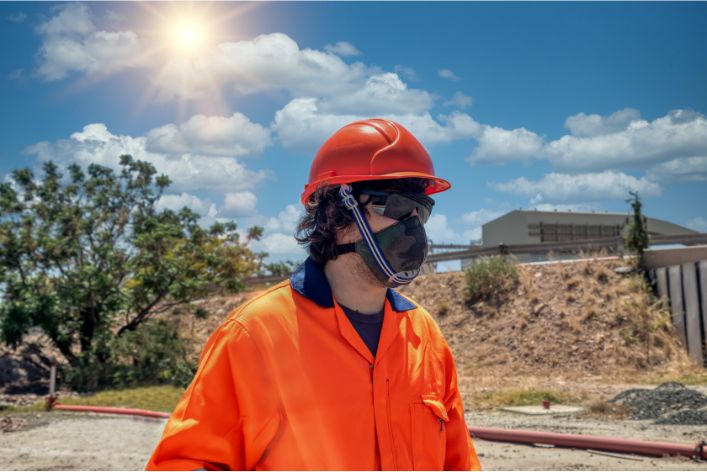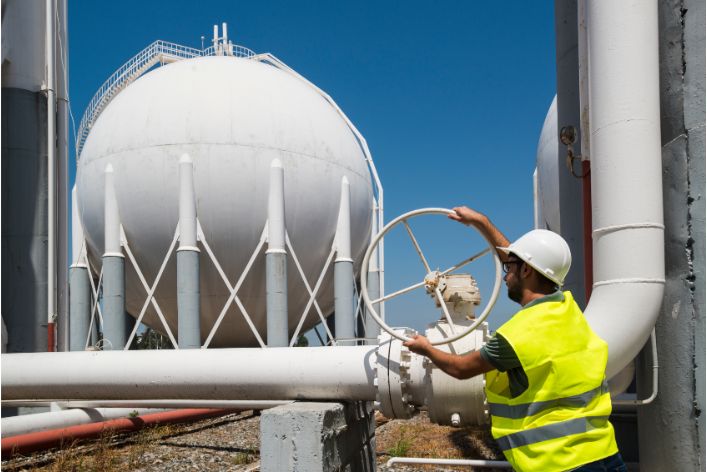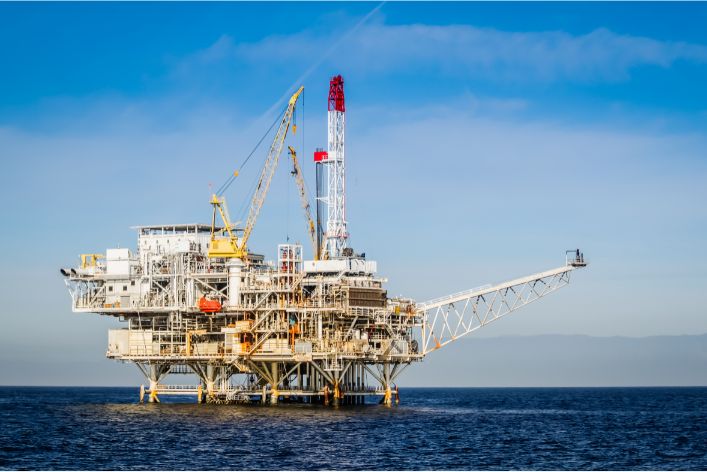Overview of Subsea Engineering and Its Importance in the Energy Sector
Defining Subsea Engineering
Subsea engineering focuses on the design and implementation of underwater structures.
This field plays a crucial role in the oil and gas industry.
It involves deepwater exploration and production techniques.
Engineers must address unique challenges posed by underwater environments.
Thus, they utilize specialized tools and technologies.
The Role of Subsea Engineering in Nigeria
Nigeria’s economy heavily relies on its oil and gas sector.
Subsea engineering contributes significantly to this industry’s efficiency.
Increased demand for energy drives innovations in subsea technologies.
As a result, Nigeria is focusing on maximizing its underwater resources.
Importance of Subsea Engineering in Energy Production
Subsea engineering enhances safety and operational efficiency.
It allows for the extraction of oil and gas from challenging locations.
Advanced technologies minimize environmental impact.
Furthermore, subsea projects often lead to sustainable energy practices.
Career Opportunities in Subsea Engineering
The transitioning energy landscape opens numerous career paths.
Professionals in this field are in high demand as the industry grows.
Subsea engineers work with multinational companies and local firms.
They play integral roles in project management and execution.
Additionally, ongoing training keeps engineers updated with innovations.
Current State of Subsea Engineering in Nigeria
Opportunities in Subsea Engineering
Nigeria boasts extensive offshore oil reserves that present significant opportunities.
Subsea engineering can contribute to efficiently exploiting these resources.
Many international and local companies actively seek skilled subsea engineers.
Additionally, the growing demand for renewable energy opens new avenues for innovation.
Professional growth is also visible through various training programs in Nigeria.
Therefore, graduates can gain valuable skills in this specialized field.
Challenges Facing the Subsea Engineering Sector
Despite its potential, the sector faces several significant challenges.
Firstly, inadequate infrastructure hampers operational efficiency.
Many regions lack the necessary facilities for advanced subsea projects.
Secondly, the high cost of technology can limit access for local companies.
Furthermore, unpredictable regulatory environments can deter investments.
Lastly, a shortage of experienced professionals poses a challenge for growth.
Future Prospects for Subsea Engineering in Nigeria
The future of subsea engineering in Nigeria appears promising.
Investments in technology and infrastructure will likely improve overall efficiency.
Moreover, collaboration between local and international firms can enhance capabilities.
Nurturing local talent will support sustainable development in this sector.
Ultimately, addressing existing challenges will drive innovation and growth.
The Role of Subsea Engineers in Oil and Gas Exploration and Production
Understanding Subsea Engineering
Subsea engineering involves the design and implementation of equipment for underwater activities.
This field plays a crucial role in oil and gas exploration and production.
Engineers design systems to operate effectively at great depths.
Such systems include pipelines, drilling structures, and subsea production facilities.
Key Responsibilities of Subsea Engineers
Subsea engineers oversee the installation of subsea hardware.
They ensure that all equipment functions safely and efficiently under extreme conditions.
Moreover, they conduct regular inspections to prevent malfunctions.
They collaborate with various teams to design effective solutions for challenges.
Importance of Subsea Engineering in Nigeria
Nigeria’s economy relies heavily on oil and gas production.
As reserves expand, the demand for subsea engineering expertise grows.
Subsea engineers contribute to tapping into deep-water resources.
This role helps maximize production while minimizing environmental impacts.
Challenges Faced by Subsea Engineers
Subsea engineers face unique challenges due to underwater conditions.
These include high pressures, low temperatures, and corroding environments.
To address these, engineers must innovate and adapt existing technologies.
Safety is also a prime concern; robust safety measures are essential.
Collaboration with Other Disciplines
Subsea engineers work closely with geologists and marine biologists.
This collaboration ensures that subsea operations consider environmental factors.
It fosters a balanced approach between exploration and ecosystem preservation.
Career Opportunities in Nigeria
With the rise in subsea projects, career opportunities have expanded significantly.
Graduates with expertise in subsea engineering are in high demand.
Companies are seeking skilled professionals to meet their operational needs.
Moreover, ongoing training and development opportunities enrich career growth.
Find Out More: Exploring Offshore Job Roles in Nigeria’s Oil and Gas Industry
Educational Pathways
Essential Degree Programs
Subsea engineering offers diverse career pathways in Nigeria.
Often, a bachelor’s degree in engineering serves as the minimum qualification.
Relevant fields include marine, mechanical, and civil engineering.
Students should focus on universities that offer specialized subsea courses.
Furthermore, pursuing a master’s degree can enhance career prospects.
Professional Certifications
Certifications can significantly boost an engineer’s qualifications.
Professional bodies, such as the Nigerian Society of Engineers, offer relevant certifications.
Becoming certified in subsea engineering demonstrates expertise and commitment.
Additionally, consider certifications in project management and safety standards.
Internships and Practical Experience
Gaining hands-on experience is crucial for aspiring subsea engineers.
Look for internship opportunities with leading oil and gas companies.
Participating in practical training sessions enhances technical skills.
Moreover, networking during internships can lead to job opportunities.
Key Skills for Success
Subsea engineers require critical thinking and problem-solving skills.
Strong mathematical abilities underpin engineering principles.
Communication skills are equally important for collaboration in teams.
Furthermore, adaptability to new technologies is essential in this field.
Emerging Trends and Specializations
The subsea engineering field is evolving rapidly in Nigeria.
Specializations in renewable energy and deep-sea exploration are gaining traction.
Moreover, underwater robotics and automation are transforming work methods.
Keeping abreast of industry trends enhances employability.
Career Opportunities in Subsea Engineering
A career in subsea engineering is promising for Nigerian graduates.
Focused educational pathways and certifications can lead to success.
With practical experience and constant skill development, the possibilities are endless.
Learn More: Quality Oil and Gas Solutions in Port Harcourt – Substrata Oil & Gas Limited
Emerging Technologies in Subsea Engineering
Introduction to Innovations
Subsea engineering evolves rapidly due to technological advancements.
Innovations enhance efficiency and safety in underwater operations.
For instance, companies increasingly use remotely operated vehicles (ROVs).
Publish Your Professional Profile, Business or Brand
Showcase your expertise, gain trust, and boost visibility instantly on Professions.ng.
Publish NowThese tools allow for precise, complex tasks without human divers.
Underwater Robotics
Underwater robotics represent a significant advancement in the field.
They perform inspections, maintenance, and repairs with high accuracy.
Robots reduce risks for human operators in challenging environments.
For example, the Ocean Infinity’s subsea drones operate autonomously.
Additionally, these machines enable real-time data collection.
3D Printing Technology
3D printing has begun transforming subsea engineering processes.
This technology allows for rapid production of components on-site.
Consequently, it minimizes delays in repairs and part replacements.
Companies like GE Oil & Gas utilize 3D printing effectively.
This approach significantly reduces costs and waste in production.
Data Analytics and AI
Data analytics plays a crucial role in enhancing operational efficiency.
Artificial intelligence (AI) helps in predictive maintenance strategies.
Moreover, it optimizes various subsea functions and workflow processes.
For instance, BP leverages AI to analyze subsea data for better decision-making.
This integration leads to safer operations and increases productivity.
Sustainable Practices
Emerging technologies also promote sustainable operations in subsea engineering.
For example, new energy-efficient systems reduce environmental impact.
Organizations prioritize eco-friendly solutions to meet global standards.
Renewable energy sources are also becoming more prominent.
Such developments reflect the industry’s commitment to responsible engineering.
Future Directions in Subsea Engineering
Emerging technologies in subsea engineering shape the industry’s future.
With these innovations, Nigeria can position itself as a leader.
Ultimately, this field promises growth and opportunities for aspiring engineers.
Delve into the Subject: Top Skills You Need to Succeed as an Offshore Drilling Engineer in Nigeria

Job Market Trends
Demand for Subsea Engineers in Nigeria
Nigeria’s oil and gas sector significantly drives the demand for subsea engineers.
As offshore exploration increases, companies seek skilled professionals for complex projects.
Furthermore, local and international firms heavily invest in subsea technologies.
This trend boosts job opportunities across various subsea engineering fields.
Moreover, Nigeria’s position as an oil-rich nation attracts global players.
These companies are eager to collaborate with local engineers familiar with specific challenges.
As a result, Nigerian subsea engineers are becoming more competitive in the global market.
Global Context of Subsea Engineering
Globally, the subsea engineering field is witnessing rapid growth.
Countries like Norway and Brazil have established strong subsea sectors.
These markets set benchmarks in technology and efficiency for Nigeria to follow.
Moreover, recent advancements in robotics and automation open new avenues.
Subsea engineers now tackle challenges previously deemed insurmountable.
Consequently, the global shift towards sustainable energy solutions adds urgency.
Engineers must adapt to emerging technologies and methodologies.
As Nigeria aims to diversify its energy sources, the demand for innovation increases.
Gain More Insights: How to Kickstart a Lucrative Career in Nigeria’s Oil Refining Sector
Sustainability and Environmental Considerations in Subsea Projects
Importance of Sustainable Practices
Sustainable practices are vital in subsea engineering projects.
They help preserve marine ecosystems and biodiversity.
Moreover, sustainable approaches reduce the environmental footprint.
By promoting sustainability, engineers foster a healthier ocean environment.
Regulatory Compliance
Subsea projects must adhere to strict environmental regulations.
Compliance ensures protection of aquatic habitats.
Additionally, regulations promote technology innovations that minimize impacts.
Companies like MarineTech Solutions emphasize adherence to these standards.
Innovative Technologies
Subsea engineering increasingly relies on innovative technologies.
These technologies help mitigate environmental risks effectively.
Examples include remote monitoring and automated systems.
Such technologies promote efficiency while safeguarding marine life.
Community Engagement
Engaging local communities is crucial in project planning.
Feedback from communities can lead to improved project outcomes.
This collaboration fosters transparency and builds trust.
Additionally, it encourages shared responsibility for the marine environment.
Environmental Impact Assessments
Conducting environmental impact assessments is essential.
These assessments identify potential risks to marine ecosystems.
Moreover, they help in developing mitigation strategies.
Regular updates can enhance response strategies throughout the project.
Monitoring and Reporting
Ongoing monitoring ensures compliance with environmental standards.
Regular reporting creates accountability within organizations.
This process fosters continuous improvement in sustainability practices.
Such transparency is crucial for stakeholder confidence.
Career Advancement and Professional Development Opportunities in Subsea Engineering
The Rise of Subsea Engineering Careers
Subsea engineering is rapidly growing due to increased investments in offshore resources.
This growth leads to new job opportunities for skilled engineers.
Professionals in this field enjoy a diverse range of roles.
Moreover, the demand for subsea engineers is expected to continue rising.
Professional Growth Pathways
Subsea engineers can pursue various pathways for career advancement.
Companies often offer mentorship programs to support skill development.
Furthermore, gaining certifications can enhance professional credibility.
Engineers may also attend workshops and training courses.
These experiences can broaden their knowledge and expertise.
Industry Networking Opportunities
Networking plays a crucial role in career progression in subsea engineering.
Industry conferences provide platforms for professionals to connect.
For instance, events like the Offshore Technology Conference attract leading experts.
Through networking, engineers can discover job openings and collaboration opportunities.
Online platforms also facilitate connections within the subsea community.
Research and Development Roles
Subsea engineering also opens doors to research and development positions.
Innovative projects often rely on skilled engineers for successful implementation.
Collaboration with academic institutions can foster cutting-edge research.
These roles contribute to technological advancements in the field.
Global Career Opportunities
Subsea engineers can explore global opportunities in offshore projects.
Many companies operate in various countries, offering international exposure.
This experience can enrich personal and professional perspectives.
Furthermore, working abroad can enhance one’s technical skill set.
Publish Your Professional Profile, Business or Brand
Showcase your expertise, gain trust, and boost visibility instantly on Professions.ng.
Publish NowContinuous Learning and Adaptation
Technology in subsea engineering is constantly evolving.
As a result, continuous learning is essential for career success.
Professionals must stay up-to-date with the latest trends and technologies.
Online courses and certifications make it easier to learn new skills.
Investment in personal development can significantly impact career trajectory.
Additional Resources
exxonmobil-in-nigeria-coffee-table-book.pdf
Disarmament, Demobilisation, and Reintegration: Analysing the …




